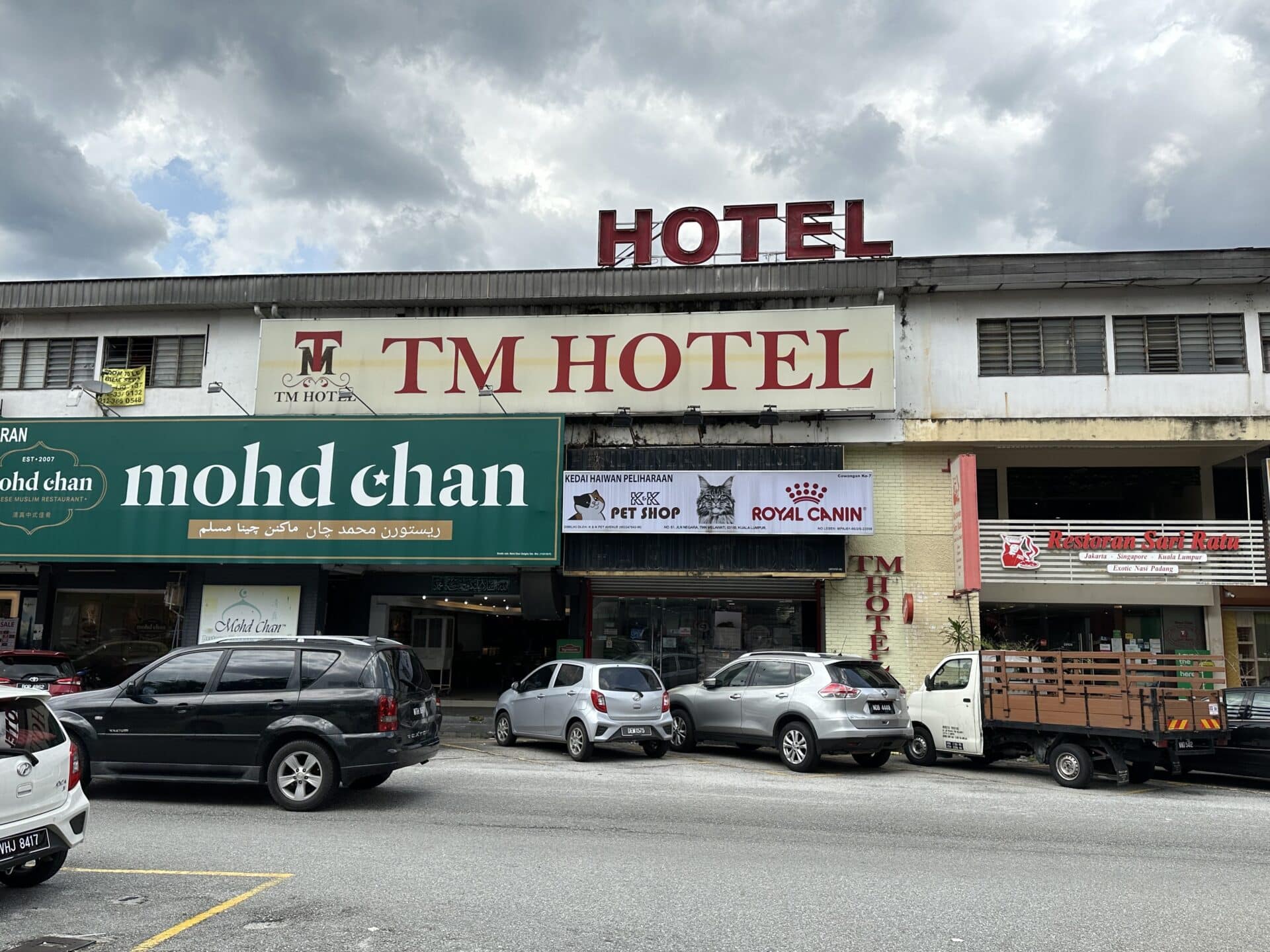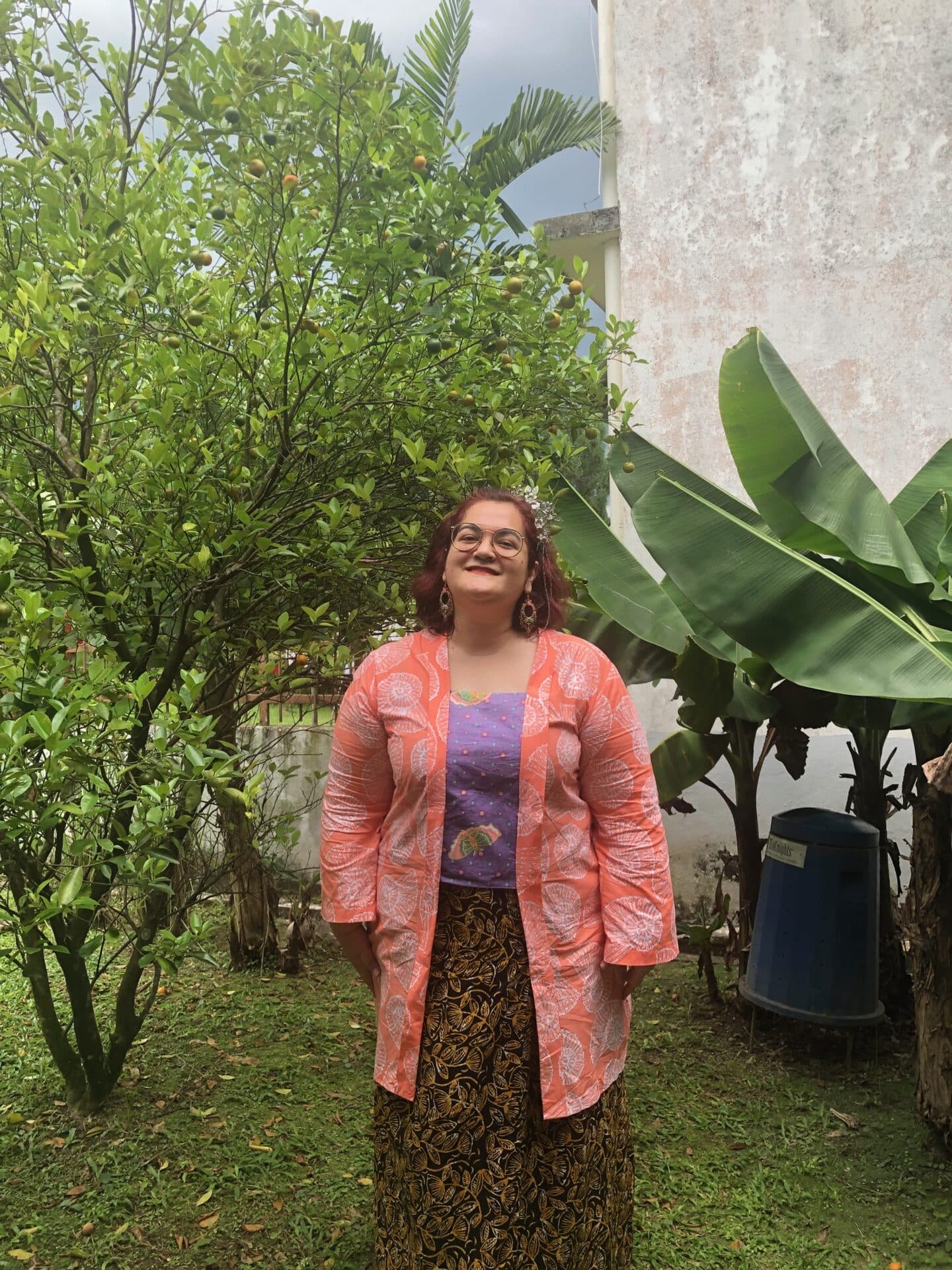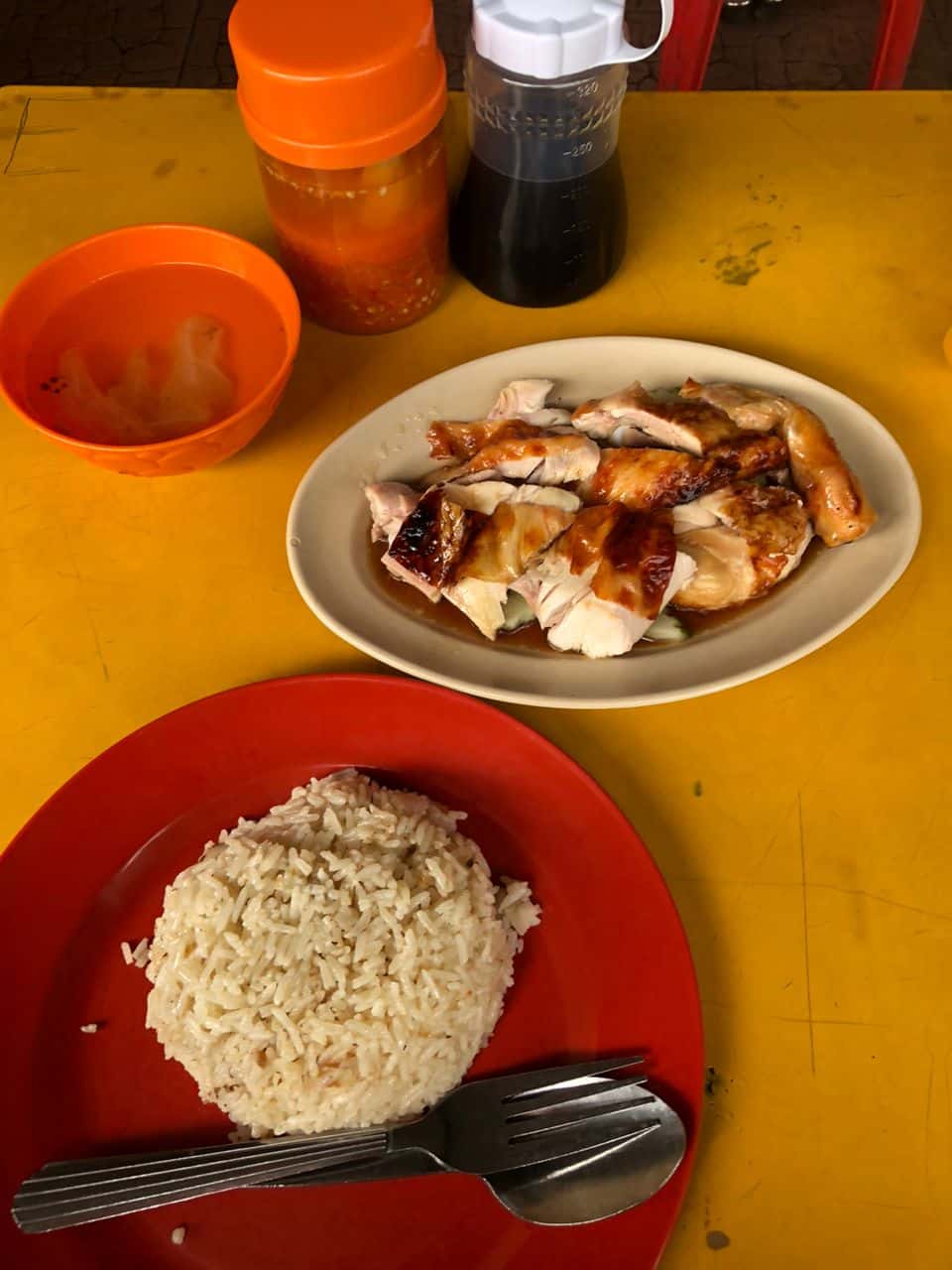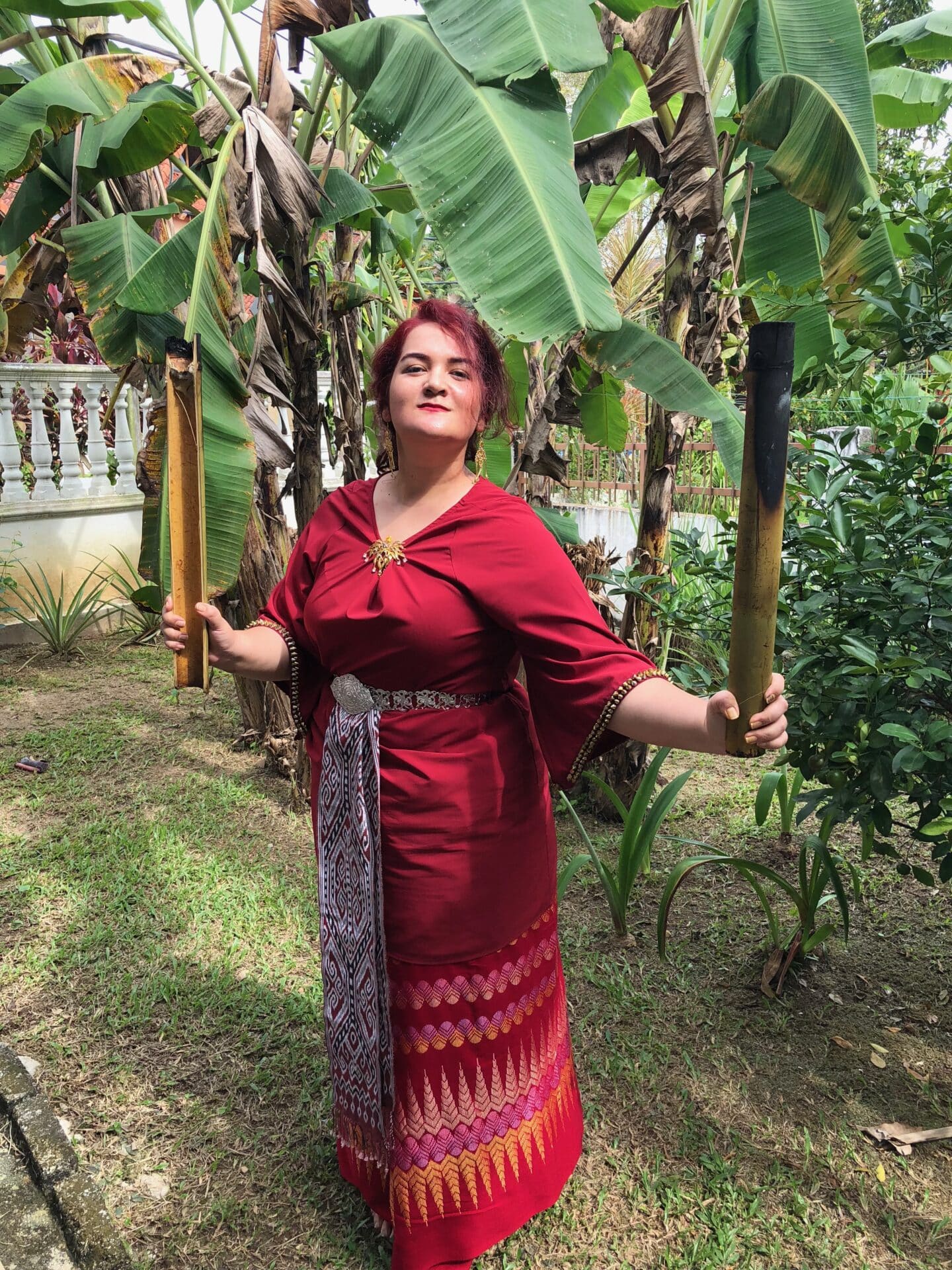Raging Burgundy Era: a Girl, a Suburb and a Lifelong Connection
Photo: Adriana Nordin Manan
Taman Melawati | 2,000 words
‘Sayang, today you want cut your hair or not?’ May, my hairdresser, asks me with a buoyant lilt, like an adult asking a child if they’d like something to eat.
I’ve sat in the swivel chair looking in the mirror as May and her tray of tools work wonders behind me many times for close to 15 years. She has been such an enduring part of my adulthood, I don’t quite remember the first time we met. But I do know that location played a huge part in it all. May works in Taman Melawati, a suburb of Kuala Lumpur and one of many such Taman (a Malay word usually referring to park or garden, but that can also refer to housing estates) that dot Malaysia from city to countryside. My usual spot for everything from banking to stationery shopping to eating, Melawati brought me to May simply because the salon where she worked caught my eye as I was walking around one of its main roads.
Mechanics, hairdressers, tailors. Skilled tradespeople you need in your life, and who you really should approach only when they come recommended by others. I eschewed this wisdom when I dropped by May’s salon that day. I had recently returned from university abroad and started work as a corporate rat in the city. Part of reacclimatising to home was to get my personal grooming affairs in order. A hairdresser was top priority.
If life were a sitcom with a revolving cast of supporting characters, hairdressers would have a place in my family’s ensemble. Back in the 80’s, I became a client-by-association of my mother’s hairdresser, Melissa. We’d walk up a flight of stairs to her first floor shop lot, and be bombarded by questions about family, friends and the usual grumbles of life as she snipped away. Once, she put on my make-up and did my hair for my kindergarten concert.
Chin Chin is my grandmother’s hairdresser. She’s more restrained, a bit reserved, quick and snappy with her work. Her demeanour suits my Nenek’s sensibilities. With Chin Chin, Nenek’s bob is assured.
And then there’s May. We hit it off pretty much immediately. She’s friendly, chatty, she remembers the little details of her clients’ lives and shows genuine interest in how everyone’s doing. And true to her status as a guardian of her craft, she provides expert advice and tells me when my suggestions are off. A bob would make my head look small compared to the rest of my body. Blue hair might sound nice in theory, but was a bad idea. Rebonding? A hard no.
May’s crowning glory, and what cemented my place in her roster of regular clients, is the hair dye she concocted for me. It ushered in a new era, a raging burgundy one. Before that, I had light brown streaks on my natural black, which sometimes made me look like I had a golden snub-nosed monkey hanging limply down my face. With this colour I now consider my signature, I’ve been stopped by strangers asking where I get my hair done. May even dyes my eyebrows, something I used to object to but now accept without protest.
May is very caring. There’s always a glass of cold water brought to me before we begin. Around Chinese New Year, she serves me mandarin oranges, seaweed crisps or arrowroot chips. Any tid-bits she keeps for herself will be shared with me, except when she suspects it contains something that came from a pig. Once, she gave me small sachets of facial cream and biscuits to take on holiday in Istanbul. The cream made my skin flare up, but the biscuits I liked.
Through May, I also peer into the life of a fellow Malaysian who is on a different track—yet the details feel familiar. She’s the primary caregiver for her mother and, until he passed away, her uncle. Unpaid elderly care work falling on the shoulders of unmarried women in the family is common in a country with wanting social policy.
I remember hearing about the time her uncle was warded at Hospital Kuala Lumpur. The nurses couldn’t explain details of his medication in Mandarin or Cantonese, so they suggested that he consult any pharmacy outside instead. The system’s deficient, but people try.
Sometimes, May’s stories catch me by surprise. On a morning walk one day, she heard a sermon from the loudspeakers of a nearby mosque. Instead of tuning it out as white noise, she stopped to listen and laughed because she found the preacher’s humour entertaining. This was not a reaction I had expected, my mind associating sermons in this country with more firebrand delivery. Niche content, you could say.
Like many Malaysians, May left to earn a living elsewhere. She had a stint in Singapore, until family duties called. I wonder if she wishes she could have stayed on.
‘Cilakak, they rejected my visa application you know?’ We were talking about the USA, where I had lived as a student. May has an older brother there, and many years ago she harboured thoughts of visiting. While I was swiftly slid a card by the embassy staff stating my application was approved as soon as I mentioned my scholarship benefactors, May had her application rejected.
‘They must have thought I wanted to work there lah.’
Six years ago, I moved to my own place. It’s only 15 minutes away from Melawati, but there are enough hairdressers down the road that, if I so desired, I could find one closer to home. Not a chance.


Melawati, thanks to May, will always be my port of call. An added draw is that her salon is flanked by a halal Chinese restaurant and a nasi padang restaurant. What’s better than an afternoon at a hair salon with air conditioning and a hairdresser you consider a friend? All of that plus a takeaway chicken char siew pau to munch on, or a belly full from sambal udang petai with hot steaming rice and a side of emping belinjo, that’s what.
*
Eating. Back in the days when my biggest responsibility was to go to school and do as I was told by the adults around me, that’s what Melawati was for. There were two places we frequented: the banana leaf rice shop and the chicken rice stall.
In the early years of their marriage, my parents used to eat dosai at the banana leaf rice shop and got to know the owner, Captain Muthu. If memory serves me right, he worked in the air force, became more spiritual as he got older and eventually sold off the business. My family remained regulars when it changed hands the first time. Once, I stopped by to eat without realising I had no cash. This was a time before cashless payments were a thing, and they didn’t accept credit cards. Sheepishly, I asked if I could step out to the nearby bank and withdraw money. It was a request that hinged fully on trust. Without skipping a beat, the owners let me go. But that’s all in the past now. The shop is now on its second change of ownership and name since the 90’s. Sadly, the food isn’t the same, and I’ve found better spots for my dosai and mutton varuval fix.
The chicken rice stall was run out of a restaurant by a couple I call Auntie and Uncle. Uncle was large and round, and he towered over petite Auntie. The loud thud of cleaver on chopping board meant our plates of chicken rice would be ready soon, with their crispy layers of skin on juicy cuts of breast or thigh sitting in a puddle of soy sauce. With hints of ginger, the rice was like a soft pillow of delight ready for some choreography with the chicken, soy sauce, clear soup and chilli garlic sauce. And cucumber for added crunch.
A few years later, the municipal council built a food court, and Auntie and Uncle moved there. Eating at their stall became a personal source of pride and, appointing myself a Melawati cultural ambassador of sorts, I’d bring friends over and gush about the chicken rice. Decades passed, and as a student back on summer break or a junior executive fumbling around the workplace, I may have changed roles with the passing of time but Auntie and Uncle’s stall was a constant.
Beginning a few years ago, Uncle was absent from the stall now and then. Auntie held down the fort with the assistance of her Indonesian workers. When Uncle did turn up, he looked less large and less round.
It was May who told me the news.
I walked up to the stall, ready to order chicken rice per usual and offer words of condolences. A woman I had never seen before was in charge, working side by side with Auntie. She told me she was Auntie and Uncle’s daughter.
‘If you asked for many plates of chicken thigh, he would give you right? He was like that, he had his favourite customers, I know,’ she said after I shared my back story.
And how was Auntie doing?
‘She’s okay, she keeps herself busy.’
From the corner of my eye, I saw Auntie retrieving plates and wiping the table.
Melawati might be a place to fill one’s belly, but it’s also a place to indulge in artistry. Sartorial artistry, if we can call it that. My tailor, Kak Linda, operates on the first floor of the same food court as Auntie and Uncle’s stall. Coming from a family of tailors, Kak Linda is like May, a gem I am so glad I have in my life for how outstanding she is in her craft.
‘I like your fabrics Adriana, so it’s fun to work on them,’ she says with a smile after one of our sessions. Part consultation and part brainstorming session, when we meet she always has ideas about what I can do with the different pieces of fabric I’ve procured over time. What can I make out of four metres of Terengganu batik? A nice flowy blouse that reaches to the knee. How about a two-metre piece of Indonesian batik? A sleeveless top to wear with a cardigan.
‘Flaunt what you have, and move around with pride,’ Kak Linda quips after I wonder aloud if a kebaya might be too snug for me. Resourceful, she uses the leftover scraps of fabric to sew children’s clothes, which she hangs on a rack outside her shop to draw customers. Sometimes, her family members—usually her mother—can be seen napping on the floor while Kak Linda whirs away at her machine.
*
There’s a saying that you really know a place when you can recall what’s not there anymore. I’ll add to that by saying you also know a place when you can notice the new things that come up. The pandemic has seen many shops shutting down, but one new thing that came up in Melawati was a dental clinic steps away from the food court and on the same row as a Jehovah’s Witnesses office. The dentist, a pleasant young woman with the demeanour of a stern teacher when the occasion calls for it, tells me to always keep to a scaling schedule, floss where the toothbrush can’t reach and use mouthwash. I wonder what it was like, launching a business during the pandemic. I will reserve that question for future appointments, when we’ve become more familiar with each other.


Across the road, stationery and art supply stores sit in between opticians, 4D outlets, a 24-hour mart, sundry shops and pawn shops. One day, I popped into a stationery shop, looking for a notepad. The helpful Uncle pointed me in the right direction, and in an attempt to strike up a conversation, I asked if he spoke Mandarin and if he did, could I practise speaking it with him?
I started by asking when his birthday was, and where his hometown was. Noticing that he spoke Malay like a Malay person, I asked for his back story and true enough, he grew up in a kampung with predominantly Malay neighbours.
And then I asked about his family, specifically if he had children. He did, a son and a daughter. One of them lived in Taiwan and the other, Japan. Will they be back for Chinese New Year? And what does he think of them living far away?
‘It’s ok, if that is where they are happy to be. It’s their life lah, they get to decide.’
*
A microcosm of society, Melawati is where generations are separated due to circumstance and ambition. But, like in the case of Auntie and Uncle and their chicken rice enterprise, circumstance brings them together too.
Going back to May’s question earlier, do I want to cut my hair? Yes I do, just as I want the colour touch-ups, blow dry sessions and yes, eyebrow dyeing too. It’s my raging burgundy era, and I know who to have by my side all the way through.
© Adriana Nordin Manan
Commissioning editor: Anna Tan





-640x360.jpg)
